 A Reclaim participant writes:
A Reclaim participant writes:
Sophie – I like the way your articles guide (or sometimes the word is more appropriately ‘prod’) me in the right direction. It’s like getting extra coaching every day. My favorites this week are ‘the highest and most effective skill you can learn is to allow things to be exactly the way they are’. And ‘be observing the mind, not identify with the mind’. When I really get them, not ‘understanding’ with the mind but really get them, they help me move right into the Observer position, my current assignment. How great is that!
My answer:
Wonderful. Now, how about you learning it so deep that you don’t always need my articles to do it for you?
Her enthusiastic reply:
Wow, I would love to learn it that deep! It’s like there’s this HUGE magnet on the horizontal plane that is always there, dragging me back down. And it’s discouraging to keep failing. But I AM getting onto the vertical more often than before I started Reclaim, so there IS success, not just failure.
What do I need to do to learn it so deep that I don’t always need your articles to do it for me? Keep practicing? Or is there something more I can do?
My suggestion:
Probably waking up would be a good first step.
What you are reporting is that you are sleepwalking with occasional wake up calls.
Reverse the proportion.
If you can do it with help then you can do it. Create wake-up reminders.
Alarms, in a way
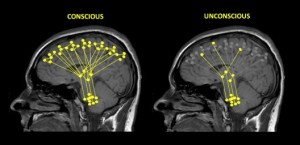 Now, for truth’s sake, it is near impossible to be present to what’s outside (or inside) all the time. I catch myself in the middle of doing something, and noticing I have no idea what I am doing.
Now, for truth’s sake, it is near impossible to be present to what’s outside (or inside) all the time. I catch myself in the middle of doing something, and noticing I have no idea what I am doing.
It happens mostly when I leave my computer to eat something or go to another room. I find myself not knowing what I am doing… I took the work with me…
Is that wrong? I don’t think so.
If Einstein had made himself wrong from being in his head, we wouldn’t have had his theory of relativity.
And the same is true for most creative people. In fact, the biggest issue most people have is that they can’t get into the groove of their work… they get stuck in repetitive thoughts about the past, about the future, about their fears, failures, and such.
It must be distinguished that creative thinking, constructive thinking, structured thinking, associated with mental work is NOT done in the mind.
Thinking is an active verb, think-ing. It means you are doing something. One thing you are doing is criticizing your thoughts, seeing whether they cohere. And if they don’t, you begin to change them and experiment with others. You get new intuitions, new insights.
Coherence
He says that our thoughts have to be criticized, by watching for its coherence. Even if an argument seems logical, it does not always mean it is. We have to become sensitive to coherence and incoherence which is a perceptive process.
Quoted from an article about an interview with David Bohm physicist.
The mind uses the brain, a tiny fragment of it, but not all.
Your work, when you are in it, is not mind…
The mind is the running thoughts, the thoughts you can’t control. About the past, about the future, about fears, trepidations, excuses, justifications, vengeance. That is mind. The merry-go-round.
So, if you say, whenever this happens, I need to do this, whenever X happens, I need to do Y. Now with that, you don’t have to think. Immediately when X happens, you are already doing Y, right? It is a reflex. Now, that is the nature of thought. And one reflex leads to another.
You say, whenever I think this, I must conclude that. Whenever I conclude that, I must go to the next step, you see, it may be established by association, or by other ways, like reasoning, where you try to organize it logically, or by similarities – association in time is the simplest, association by similarity, or a connection by logic. But, once it is done, it is all the same, it is a reflex, you see, logic is a reflex.
And here is another article I found on the topic:
Albert Einstein was quoted as having said, ‘Thinking is the hardest work you’ll ever do, that’s why most people never engage in it.’
Is there a difference between thinking and just having thoughts?
Have you ever noticed that maybe you’re not even having thoughts? Maybe the thoughts are having you?
Ask yourself, the next time a thought comes into your head like, I’m cold, I’m hungry, I’m tired or I’m angry, did I decide to generate that thought? If your answer is no then perhaps the answer to the above question might be true, that thought had you.
‘Thinking’ seems to begin with a decision to consciously generate. Problem-solving for instance begins with the decision to ‘Think’ about an issue and then attempt to generate a solution.
Unless you are in an occupation where your job description is ‘To think’ such as artists, engineers, architects and the like, most of us are seldom prompted to ‘Think’ as we go through our normal daily routine.
As with any other muscle, if we aren’t constantly exercising it, it will atrophy.
So, if you were going to consciously make a decision to ‘Think’, what would be worth your time to think about?
How about something that could improve your life? If you are going to make an investment of effort to strengthen your mind and your ability to ‘Think’ why not get a good return on your investment?
I recommend you start by asking yourself the question. ‘If there was one part of my life that I could improve that would really give me a substantial increase in the quality of life, what would it be’?
Be sure to have something to write with and write on (like a journal) to record the answers you generate. You may be surprised. However, if nothing comes to you right away, that’s normal. Remember, most of the schools we all went to don’t offer a course called, How to exercise your mind. This may take some practice if you are not in the habit consciously asking yourself hard questions.
It has been proven that the human brain grows if consciously exercised. The average human brain is approximately 3.5 pounds. When he died, they weighed Einstein’s brain and in weighed in at a whopping 8 pounds. Way to increase your hat size Einstein.
Research has proven, the mere act of consciously focusing your mind of something begins to translate itself into its physical reality. So, that old adage, ‘Be careful what you wish for, for you surely will get it’, and the phenomenon of self-fulfilling prophesy may be power strategies after all.
Keep thinking my friends.
Unless and until you can distinguish between actual thinking, and mind-chatter, you’ll keep making yourself wrong: and you are driven to the mind.
Whenever you are making yourself or someone/something else wrong, you find yourself in the mind.
- There is no wrong or right in thinking, at least not the emotional wrong and the emotional right.
- Thinking is a lot like the Observer: doesn’t take sides, doesn’t have emotional investment.
One of the mistakes OUR teachers have made is this confusion between mind and the brain itself. Between having thoughts and thinking as an action.
Thinking can discover uncharted territories, while mind can only deal with what is already known from the past.
Practice to tell the difference. You’ll be a happier person.
For example, tell me if you can: am I in the mind when I replay scenes from a movie in my mind to see some common occurrences with people?
Please vote below. Am I all in the mind, or am I thinking? Am I on the horizontal or the vertical plane when I do this type of thinking?

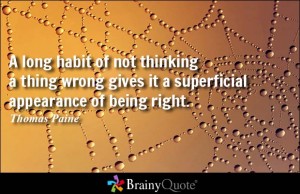
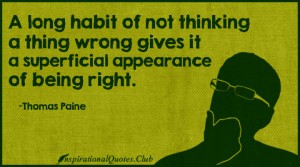
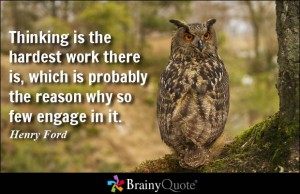

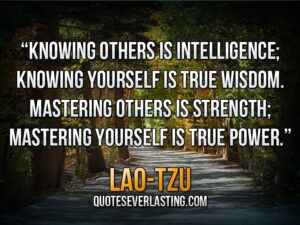
bring it to your Reclaim, Ronda
After reading your post several times, I see the truth of what I’m avoiding. Thank you.
I’m going to reread the commitment article and take the first step you wrote about there.
being ashamed is a strategy to avoid being responsible. As in owning what you did. That instead of doing what’s important to you you did what was important to look good, what was important to other people.
Also, the guilty feeling robbed you of your brain power to do both, at the same time.
NO activity, I’ll repeat, no activity needs 100% of your brain power… except guilt, shame, fear, etc.
I was ashamed because I didn’t practice the exercise you shared with me.
I’ve been putting all my focus into work lately because of the demand from my supervisor but also to avoid being scolded. I feel like a child there sometimes.
thank you Ronda.
Haven’t seen you for a while on Reclaim… what’s up?
My vote is for thinking.
You are not involved in thoughts about the past, the future, fears or failures.
You are using analytical skills which are void of emotions and judgment.
thank you Matsa
I’d say you are thinking; you are in a thinking process to find some solution, distinction or the like, generating or directing your thoughts, making them in ‘organised way’ with a specific end. So, it’s vertical plane.
thank you Miko.
I think that you’re actually thinking while doing that. You are using your mind as a resource, you operate it consciously and purposefully, with ‘you’ outside of the mind, so you’re on the vertical.
The question was:
How about the second part of the question?
When I replay scenes from a movie in my mind in analytically (to see some common occurrences with people), I am thinking. I am taking the movie as an object, and spinning it around in my mind to look at from different angles. I am not just experiencing it, I am consciously processing it.
Thanks, Kathryn
My vote: When you replay scenes from a movie in your mind to see some common occurrences with people, you’re definitely thinking, using your mind as a tool, and on the vertical.
I have that experience when I’m writing some new computer programming that I’ve never written before. In times like that, I’m thinking, using my mind as a tool, separate from my mind instead of drowning in it.